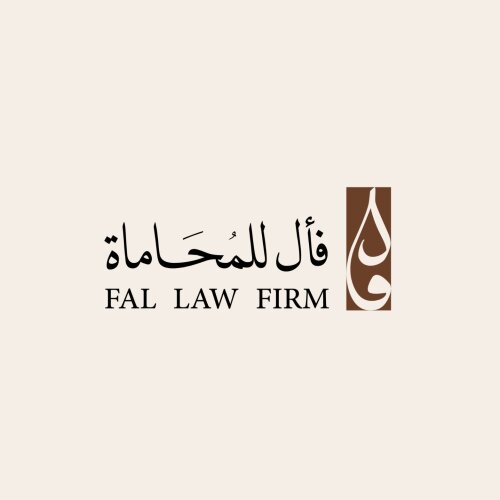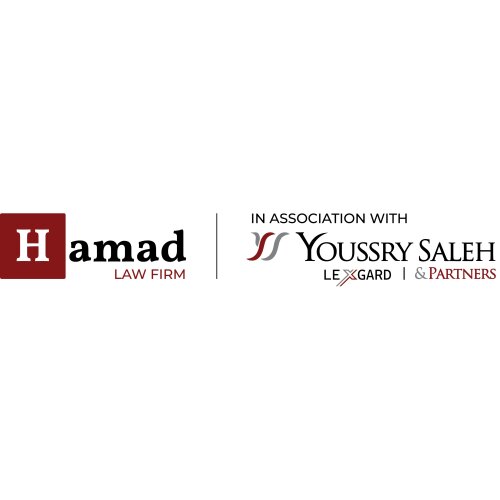Best Real Estate Lawyers in Riyadh
Share your needs with us, get contacted by law firms.
Free. Takes 2 min.
Free Guide to Hiring a Real Estate Lawyer
List of the best lawyers in Riyadh, Saudi Arabia

Saudi Arabia Real Estate Legal Questions answered by Lawyers
Browse our 2 legal questions about Real Estate in Saudi Arabia and read the lawyer answers, or ask your own questions for free.
- I have apt for sell in Alex
- السلام عليكم مساء الخير كنت بستشيرك إذا ممكن الوالدة الله يرحمها أتوفت قبل شهرين وانا وكيلها هيا عندها شقة في مصر و ودنا أنا و اخوية نبيعها تقدر تفيدنا فيها او كيف الطريقة
-
Lawyer answer by ItQan - Advocates & Legal consultants
وعليكم السلام. أهلاً وسهلاً. نحتاج نتطلع على سند الملكية وحصر الورثة وإن شاء الله نقدر نساعدك في بيعها.
Read full answer - I want to sell my apt in Alex
- السلام عليكم عليكم مساء الخير كنت بستشيرك إذا ممكن الوالدة الله يرحمها أتوفت قبل شهرين وانا وكيلها هيا عندها شقة في مصر و ودنا أنا و اخوية نبيعها تقدر تفيدنا فيها او كيف الطريقة
-
Lawyer answer by ASR Law Group LLC اتحاد العصر للمحاماة والاستشارات
لا بد من الاطلاع لعى المستندات الملكية ومن ثم يمكننا بيعها بعد التنسيق معكم
Read full answer
Saudi Arabia Real Estate Legal Articles
Browse our 1 legal article about Real Estate in Saudi Arabia written by expert lawyers.
- Buying Property in Saudi Arabia as a Foreigner: Legal Guide
- Most real estate in Saudi Arabia is now tracked and transferred electronically through the Ministry of Justice's Najiz platform, using official title deeds (Sak) that should always be verified before any payment. Property sales are generally subject to a 5% Real Estate Transaction Tax (RETT), while leases are not, but... Read more →
About Real Estate Law in Riyadh, Saudi Arabia
The real estate sector in Riyadh, Saudi Arabia, is enduring many modernizations with the nation's growth and acceleration program, Vision 2030. Real Estate law in Riyadh encompasses rules, regulations, and legal procedures involving property ownership, tenancy agreements, transfers of property, and more. It regulates both commercial and residential properties, protecting the rights and interests of property owners, investors, tenants, and real estate professionals.
Why You May Need a Lawyer
Hiring a legal expert is beneficial in various situations in the real estate business. For instance, if you're buying, selling, or leasing a property, you may encounter contracts and negotiations that require legal expertise. If there are disputes over property ownership, property boundaries or real estate transactions, having an attorney ensures that your rights are protected. Lawyers also help to navigate complex zoning regulations or guide through property development, inheritance issues, or housing violations.
Local Laws Overview
There are several laws and regulations one should be aware of when dealing with Real Estate in Riyadh, including but not limited to:
- Law of Ownership and Encumbrances: This law regulates property ownership, easements, and encumbrances.
- Law of Renting Property: This governs the relationship between landlords and tenants, including the terms of rental agreements, rights of the parties, and eviction rules.
- Law of Urban planning: This relates to land utilization, zoning, and other aspects of urban planning and development.
Frequently Asked Questions
Can foreigners own property in Riyadh?
Yes, foreigners are allowed to own property in Riyadh for residential or investment purposes, under certain conditions and procedures set by the Saudi government.
What property rights do tenants have in Riyadh?
Tenants in Riyadh have a range of rights including the right to use the property for the agreed period without interference, the right to necessary repairs, and the right to receive a receipt for any payments made.
What is the procedure for buying a property in Riyadh?
The process typically involves finding a suitable property, agreeing on a price, executing a sale contract, ensuring the property is free from encumbrances, and finally, transferring the title at the Notary Public's office.
What are the common disputes in real estate in Riyadh?
Common disputes often relate to ownership and boundary issues, rental disagreements, property defects, breach of contract, and zoning violations.
Can property be inherited in Riyadh?
Yes, Saudi law allows for property to be passed on as inheritance according to the regulations in Islamic Sharia law.
Additional Resources
The Ministry of Justice and the Ministry of Housing provide various resources and guides for real estate matters in Saudi Arabia. You may also consider professional support from local real estate companies, consulting firms, and law offices that specialize in real estate law.
Next Steps
If you need legal assistance for your real estate concerns, it’s recommended to consult with a local licensed attorney who specializes in Real Estate Law. Be prepared to provide detailed information about your situation, and remember to ask about fees, possible solutions, and what you can expect from the legal process.
Lawzana helps you find the best lawyers and law firms in Riyadh through a curated and pre-screened list of qualified legal professionals. Our platform offers rankings and detailed profiles of attorneys and law firms, allowing you to compare based on practice areas, including Real Estate, experience, and client feedback.
Each profile includes a description of the firm's areas of practice, client reviews, team members and partners, year of establishment, spoken languages, office locations, contact information, social media presence, and any published articles or resources. Most firms on our platform speak English and are experienced in both local and international legal matters.
Get a quote from top-rated law firms in Riyadh, Saudi Arabia — quickly, securely, and without unnecessary hassle.
Disclaimer:
The information provided on this page is for general informational purposes only and does not constitute legal advice. While we strive to ensure the accuracy and relevance of the content, legal information may change over time, and interpretations of the law can vary. You should always consult with a qualified legal professional for advice specific to your situation.
We disclaim all liability for actions taken or not taken based on the content of this page. If you believe any information is incorrect or outdated, please contact us, and we will review and update it where appropriate.
Browse real estate law firms by service in Riyadh, Saudi Arabia
Riyadh, Saudi Arabia Attorneys in related practice areas.
















